Learn more about planning and executing Project Medical Education at your institution with guidance from individuals who have hosted PME before.
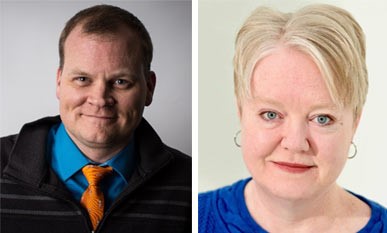
The University of Utah has hosted PME events since 2014.
Why PME?
Kristin: We held our first Project Medical Education simply to educate our legislators about the needs of the medical school as we prepared for a major campus transformation project. The first session was so successful, we held subsequent sessions, but shortened them to half-day. One of the most unique PME sessions we did was with a group of legislator spouses. They were very interested in our Anatomy Lab, so we arranged a 2-hour session with one of our best anatomy professors.
Aaron: As Kristin mentioned, we started using PME as a way to help our state and federal lawmakers understand what goes into educating new physicians. Knowing we would need state support to help fund building a new medical school, we felt that immersing our guests in a PME experience would help them discover the need for themselves rather than us trying to get their attention in more conventional ways.
How did you do it?
Kristin: Starting about six months before the event, we meet regularly with key groups within the School of Medicine administration. The Student Affairs, Curriculum, Marketing, and Government Relations departments are especially important to getting PME off the ground. The dean's office takes the lead and works with these groups to establish goals, set an agenda, and get faculty and staff participation. After each session, we debriefed to determine if our goals were met and talked about ways to improve.
Aaron: Our PME events have been pretty conventional, structurally speaking. But at every turn our focus is on giving our guests a great experience. We want them to have fun, so interactivity and engagement is key. We begin with a white coat ceremony and an informal-and unscripted-Q&A with leadership. Then it's off to the activities. These have ranged from brief lectures from faculty to interaction with standardized patients. Other favorites include the gross anatomy lab, visits to the simulation centers, a lunchtime Match Day simulation, and brief "residencies" in various areas of the hospital. In all of these, our medical student ambassadors are there to answer questions and really give the most authentic voice when it comes to medical education. Each of our events has drawn 15 to 20 participants, who all leave with a certificate of completion, a photo from white coat ceremony, and some small token of appreciation that we hope will help them remember PME. I think it is safe to say that PME has been successful for us. Aside from anecdotal feedback from our guests, in 2017 the Utah state legislature approved funding to help build a new medical school building, which will be a great gift to the state of Utah and the Mountain West region.
Any Advice to future PME hosts?
Kristin: If you can, plan months in advance. Involve key players and listen to their suggestions. Hold a debriefing meeting afterwards to determine what was successful or not. And, enjoy it! It really is a great activity.
Aaron: Two key pieces of advice. First, buy-in from executive leadership is a magical means of clearing roadblocks. Second, focus on the guests' experience. The goal should be for them to enjoy themselves and leave with a positive vibe about the medical school. PME is not about lobbying; policy-makers get enough of that already. PME is about experiential learning, which leads to deep understanding.
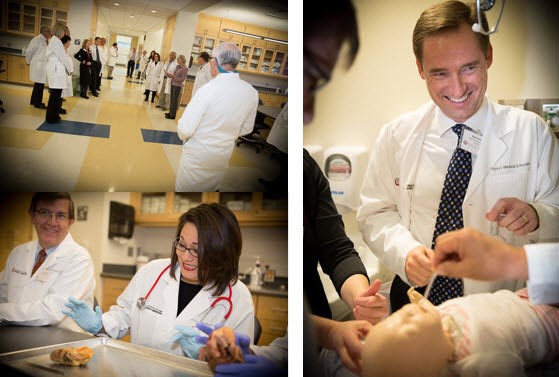 Photos from PME events at the University of Utah
Photos from PME events at the University of Utah
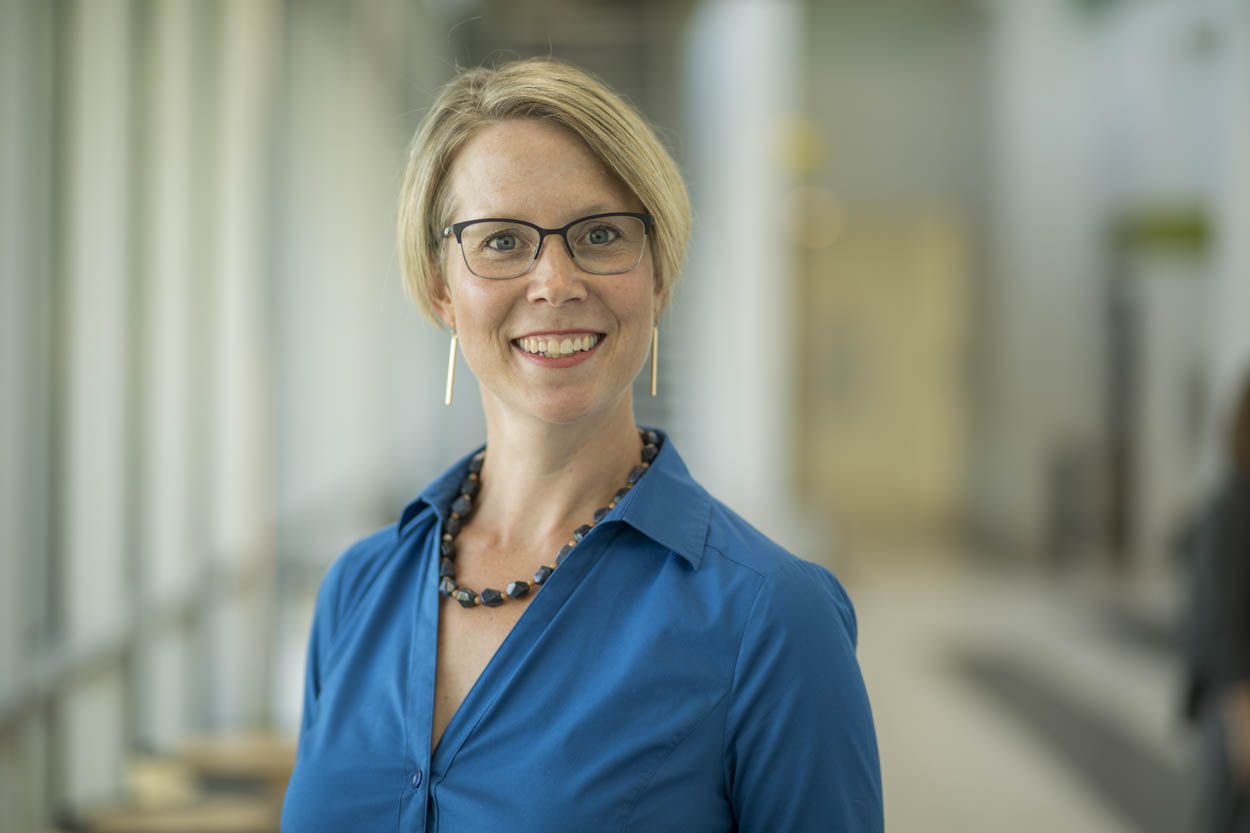
UNR has hosted an annual PME event since 2015.
Why PME?
Project Medical Education is a fantastic model to share how the University of Nevada, Reno School of Medicine is contributing to a Healthy Nevada through education, clinical care, research, and diversity and inclusion. The intimate and immersive experience is a worthwhile investment in participants who in turn become advocates.
How did you do it?
Guests to UNR Med's Project Medical Education are community influencers from a diverse array of backgrounds. We invite elected officials, community partners, medical partners, campus affiliates and university friends. Participation is limited to fewer than 20 guests to ensure those investing their time are getting the most out of it. The day-long event is fast paced as guests are exposed to four years of medical education. The event is experience-based with many hands-on opportunities as guests visit our anatomy lab, simulation labs, skills lab and clinics. PME has helped us forge stronger medical partners thus enriching our students' experiences. In addition, we've enhanced campus and community relationships and awareness. Our PME participants become a larger part of our UNR Med family with many of them opting to participate in our Multiple Mini Interview (MMI) process.
Any Advice to future PME hosts?
Authentic interactions leave great impressions. If you have students who are able to participate, guests love hearing directly from them. A collaborative approach is essential for a successful PME event. Give yourself ample time to plan, and work with the endorsement of your senior leadership.
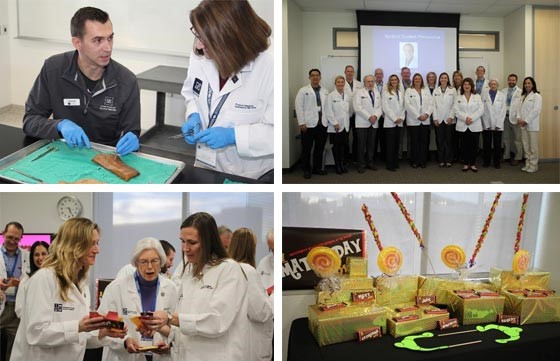 Photos from UNR Project Medical Education events
Photos from UNR Project Medical Education events
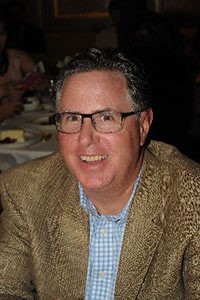
Columbia University Medical Center (CUMC) has hosted an annual PME event since 2011.
Why PME?
Project Medical Education is an excellent way to educate stakeholders about the missions of and day-to-day activities at an academic medical center.
How did you do it?
Each year we invite local residents, community leaders, and elected officials and their staff to spend the day at Columbia University Medical Center. This full-day program allows participants to meet with faculty, staff, and current students, giving them the opportunity to see up close how we carry out our patient care, education, research, and community service missions. Sessions include Medical Education, Mental Health, Research and Clinical Care, Public Health, Oral Health, and Nursing. A highlight of our program this year was our Nursing session, during which a few lucky participants were able to don scrubs and join our students in a surgery simulation. Interactive sessions like these give participants a firsthand look at the state-of-the-art technology being used at the Medical Center and a better understanding of CUMC's commitment to providing the best medical education possible.
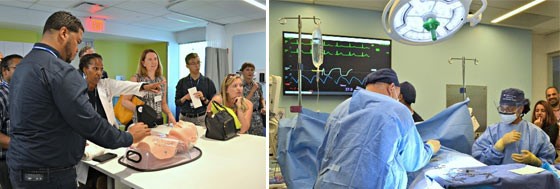 Photos from CUMC's Project Medical Education event in 2017
Photos from CUMC's Project Medical Education event in 2017
Any advice to future PME hosts?
Planning all logistical details ahead of time is crucial. It's also a great idea to get participant feedback after and make the program interesting and hands-on. Something may go off-track during the course of the day, but be sure to have fun with it anyway.